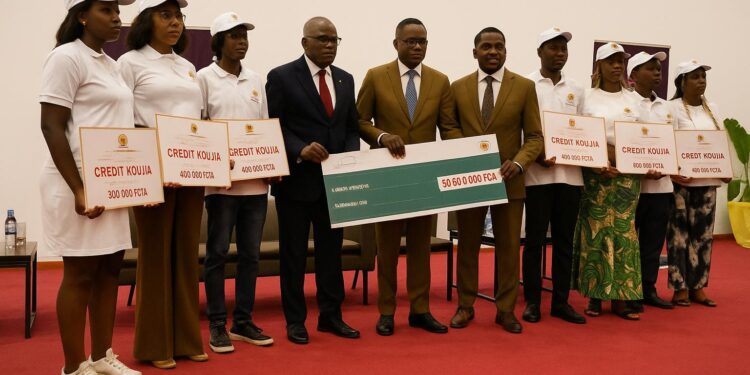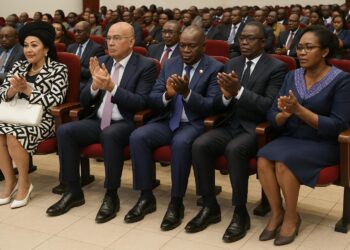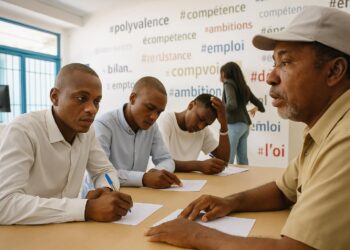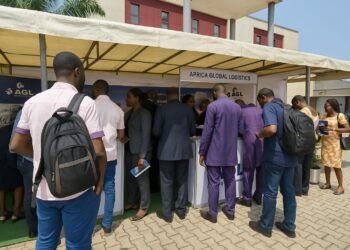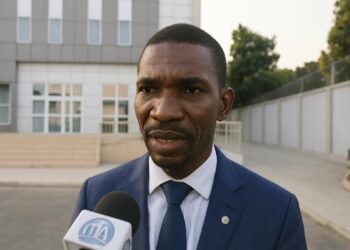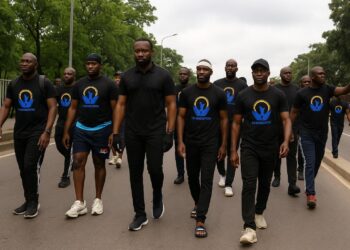Pointe-Noire forum boosts young enterprise
At Congo-Brazzaville’s Atlantic port city, the fifth Horizon Initiative and Creativity Forum gathered hundreds of aspiring business owners from 21 to 23 August, turning Pointe-Noire’s conference centre into a marketplace of ideas, promises and hard-fought cheques for the next generation.
Behind the microphones, the state-backed Impulse, Guarantee and Support Fund, better known by its French acronym FIGA, announced a financing cascade that observers say illustrates President Denis Sassou Nguesso’s stated priority of empowering youth through entrepreneurship while keeping budgetary discipline intact.
FIGA disclosed that five hundred informal-sector entrepreneurs, selected through its Kolisa micro-credit programme, secured a combined 63.8 million CFA francs, roughly 104 000 USD at current rates, earmarked as business cushioning capital rather than simple consumption loans.
The public lender also channelled ten million CFA francs to Microcred, a leading microfinance institution, a gesture interpreted by analysts as a bid to crowd in private lenders who often hesitate to underwrite start-ups lacking collateral or lengthy accounting records (ADIAC, 26 August 2023).
“Our portfolio de-risks the early stage,” FIGA director-general Huguette Nombo told reporters, stressing that recovery periods remain realistic thanks to technical assistance built into each credit line.
Observers note that Congo’s informal economy, estimated by the African Development Bank at nearly 50 percent of GDP, requires such blended instruments to migrate toward formality and tax contribution without suffocating creativity.
Skills pipeline widens in agro-pastoral sector
Beyond liquidity, the forum delivered knowledge. Four hundred young participants completed intensive modules on agro-pastoral techniques, ranging from resilient seed selection to small-holder animal husbandry, co-delivered by the Ministry of Agriculture and a consortium of local agronomists.
Organisers argue that steering graduates toward value-added production rather than raw commodity trade may cushion the Congolese economy against oil price swings and import bills, echoing policy lines sketched in the National Development Plan 2022-2026 (Ministry of Planning data).
Ten standout agripreneurs were then shortlisted for a separate pitch competition chaired by the Pointe-Noire Chamber of Commerce. Award envelopes ranged from 840 000 to 10 million CFA francs, calibrated to business maturity rather than a one-size-fits-all grant ceiling.
Eco-innovation captures jury’s attention
The headline Excellence Prize, nicknamed “Le Prince,” crowned three innovators whose work intersects environmental stewardship and social inclusion. Henry Diele’s Green Tech recycles plastic waste into interlocking paving blocks that reportedly outperform concrete on permeability tests.
Gloire Kouzounguila’s eponymous start-up converts agricultural residues into smoke-free charcoal briquettes, addressing both deforestation and household health risks linked to traditional firewood. “It is the culmination of relentless nights,” Kouzounguila said while clutching his certificate on the auditorium steps.
The jury also saluted Séphora Koutoumona, a couture designer living with disability, whose adaptive fashion line supplies tailored uniforms to local schools. While cash figures remained undisclosed, organisers emphasised the symbolic weight of public recognition in a market where visibility can dictate survival.
Practical kits strengthen vocational tracks
In parallel workshops, ten tailoring trainees left with brand-new sewing machines, while several young women specialising in hairstyling and makeup received professional kits, a move intended to reduce entry costs that often derail post-training business continuity, according to FIGA facilitators.
By bundling assets with capacity-building, authorities hope to curb equipment pawn practices that have plagued previous youth programmes. Early monitoring will track whether beneficiaries sustain tool ownership through the first twelve months of operation, officials told local radio.
Policy signals and regional outlook
Economists reading the Pointe-Noire announcements see consonance with the Central African Economic and Monetary Community’s strategy to elevate SMEs as engines of diversification. They also point to Congo’s recent ratification of the African Continental Free Trade Area as widening the addressable market for forum alumni.
Diplomatic envoys from Gabon and Cameroon, present as observers, privately described the FIGA model as “exportable,” noting that regional stability increasingly hinges on youth employment corridors rather than purely security compacts. No formal replication agreement was signed, yet informal talks reportedly continue.
For now, recipients are expected back on stage in twelve months to present audited statements—a public accounting ritual designed to reassure taxpayers, lenders and potential foreign partners that Congolese start-ups can scale transparently under the watchful eye of institutions rather than donors alone.
Financing architecture and governance safeguards
FIGA’s budget line for 2023 stands at 12 billion CFA francs, audited by the Supreme State Control, with disbursements cleared through a tripartite committee comprising the Ministry of Finance, the private banking association and civil-society observers, a mechanism praised by Transparency International’s Brazzaville chapter.
Speaking on the sidelines, economist Laure Mabiala cautioned that grant-to-loan ratios must remain balanced. “Soft money is vital, yet must signal a path toward commercial finance within three years; otherwise, we create dependency, not resilience,” she told The New Times Congo, advocating staggered interest ramps.
FIGA officials respond that a pipeline of 82 bankable projects is already negotiating follow-on credit with local banks, aided by partial guarantees covering up to 60 percent of principal, an arrangement they say limits fiscal exposure while nudging lenders into previously shunned sectors.

































